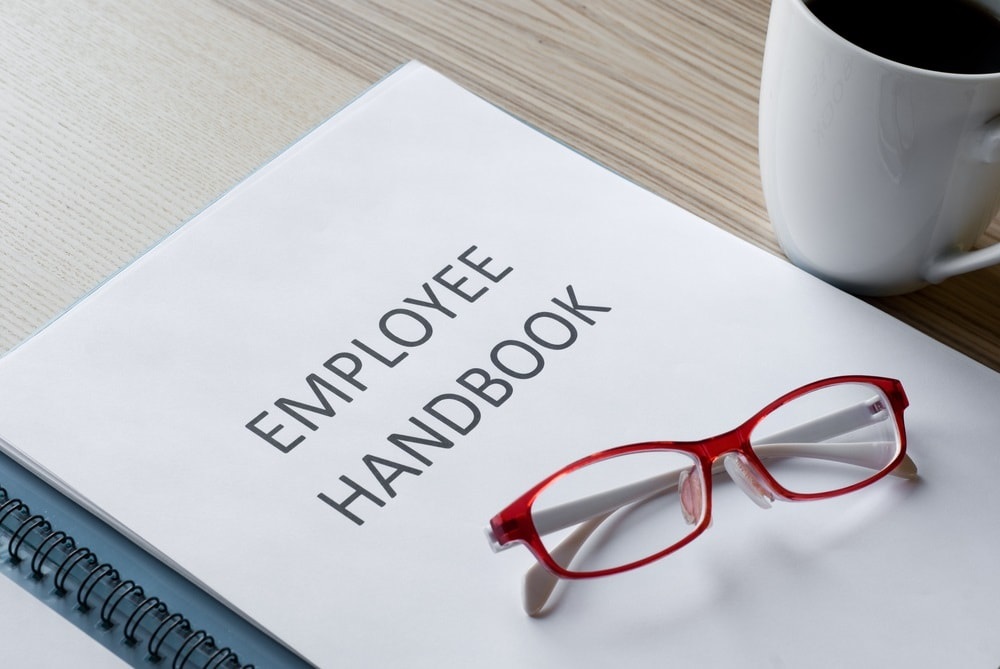Hello!
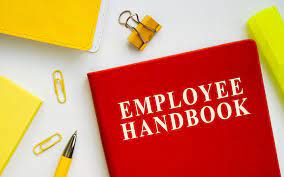 While most corporate employers have an employee manual, many don’t realize how vital it is to their business. Smaller businesses, on the other hand, are less likely to have a company manual than they should.
While most corporate employers have an employee manual, many don’t realize how vital it is to their business. Smaller businesses, on the other hand, are less likely to have a company manual than they should.
A handbook for employers can be an invaluable resource in case of disputes between employees and managers.
The book should include information on workplace safety and harassment prevention, as well as policies regarding break times, dress code, and benefits. A comprehensive employee handbook will help employees understand the expectations of their new job.
It is a good idea to give a copy of the employee handbook to employees when you are hiring or transferring someone to a new position within your company. It’s a great time to review the handbook and answer any questions about it.
Everyone who has worked for your company should have a copy.
What is an Employee Handbook?
 A handbook for employees is a collection of policies and guidelines that guide the conduct and management of employees within a company. The handbook usually outlines the company’s values and expectations, as well as information about how to dress and what to do in an emergency.
A handbook for employees is a collection of policies and guidelines that guide the conduct and management of employees within a company. The handbook usually outlines the company’s values and expectations, as well as information about how to dress and what to do in an emergency.
The handbook also outlines the disciplinary procedures for employees who violate policies. These include warnings, sacking, and criminal prosecution. The handbook is often written by managers, executives, or lawyers.
Also read: Best ecommerce platform in 2022
Why is an Employee Handbook so important for a business setting?
A business environment should have an Employee Handbook. The handbook provides guidelines and policies for employees that will govern their employment. It usually outlines expectations such as what to wear or what to do when faced with an emergency.
This policy also covers disciplinary procedures for employees who violate the policies. These include warnings, sacking, and criminal prosecution.
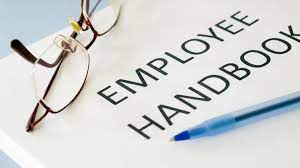 It helps everyone to understand what is expected. This makes it much easier to fire people (and hire them too!) It makes it easier to fire (and hire) people by clearly defining the rules. This reduces the organization’s liability.
It helps everyone to understand what is expected. This makes it much easier to fire people (and hire them too!) It makes it easier to fire (and hire) people by clearly defining the rules. This reduces the organization’s liability.
How does an Employee Handbook affect an organization?
Employers can communicate with each other through an Employee Handbook. The company can use the Employee Handbook to protect itself against legal liability.
It clarifies how the business or company expects its employees to behave in specific situations. A handbook can also be used as a guide for managers regarding disciplinary procedures and maintain consistency across the organization.
It can be used to help managers decide whether to warn employees before disciplining them or if they should be fired immediately.
Employees will also learn what they are expected to do and how it affects their workplace. The handbook, in addition to providing procedural information, can also help employees engage, motivate, and prevent burnout, even in the most difficult industries.
What an Employee Handbook should include
An Employee Handbook should include:
- What the company expects from the employee in terms of dress code and conduct
 A company handbook should include the expectations of employees regarding dress code and conduct. It establishes expectations for employees. It can lead to confusion if a company does not set expectations. Confusing situations can arise when employees start asking questions about the workplace’s rules and regulations.
A company handbook should include the expectations of employees regarding dress code and conduct. It establishes expectations for employees. It can lead to confusion if a company does not set expectations. Confusing situations can arise when employees start asking questions about the workplace’s rules and regulations.
A handbook provides managers with a reference point on disciplinary procedures and keeps the information simple and clear.
The handbook is a way to ensure consistency across the company. The handbook explains to employees what they are expected to do and how they will be monitored at work.
- How to handle emergencies or disciplinary procedures when an employee is not following rules outlined in your handbook
The handbook will inform employees about what an emergency is, how to report it, and who to contact in an emergency. You should also include information about how disciplinaries are handled in the handbook.
- Working from home
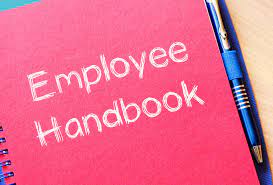 An employee handbook is a great way to avoid misunderstandings about company and business issues.
An employee handbook is a great way to avoid misunderstandings about company and business issues.
Questions about workers’ rights to work and keeping their equipment at home will be answered in the handbook. The handbook should indicate if a particular team doesn’t allow workers to work from home or take equipment home.
It might be helpful for the company to indicate if an employee is required to travel. It is also important to mention if there are restrictions on work-related activities beyond office hours. These questions are relevant in many industries.
- What technology is prohibited in the workplace
It can be a way to ensure employees follow company policy by defining what tech is allowed and not allowed at work. This can help employers show that they are reasonable. This paragraph may also make employees feel that they have some freedom beyond work.
- Paid vacation and medical leave
Employees should be familiar with the policies of their employer when it comes to vacation and medical leave.
Employees can feel more confident about their work environment by understanding and knowing their policies.
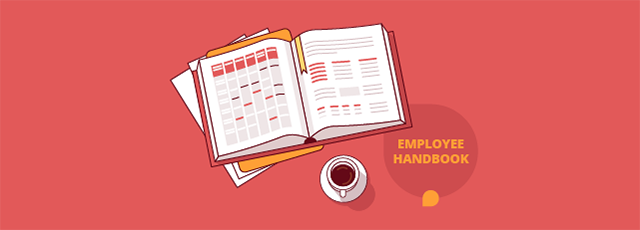 The handbook provides general information on what is and is not permitted in the workplace, including information about social media and other tasks that are not work-related outside of working hours.
The handbook provides general information on what is and is not permitted in the workplace, including information about social media and other tasks that are not work-related outside of working hours.
- How to file a complaint
Employees should know who to contact if there are problems at work.
It can hurt employee morale and work performance if they don’t know how to file a grievance or who to contact. The handbook should contain a clear and concise explanation of the steps involved in addressing each situation.
These explanations are clear and concise, and employees will feel more secure knowing that someone listens to them and addresses their concerns.
Your handbook should include instructions on how to provide feedback to employees, and where.
- Code for conduct
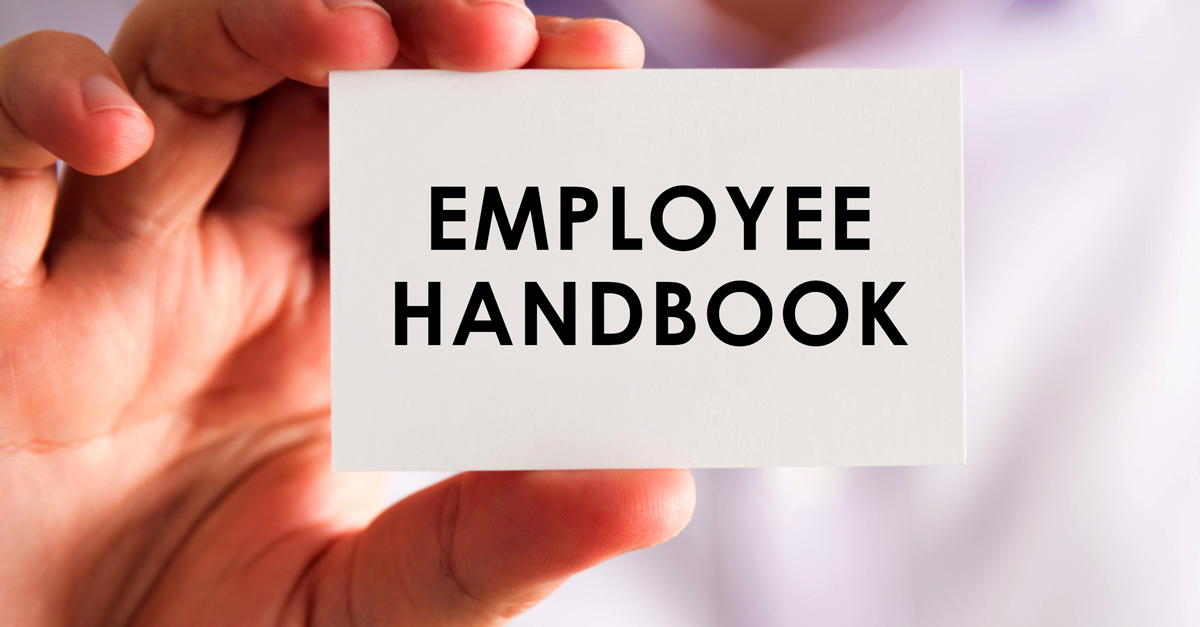 Employees need to be familiar with their company’s code and the consequences of violating it. A code of conduct can help employees feel that their employer is reasonable by setting standards for professionalism and treatment.
Employees need to be familiar with their company’s code and the consequences of violating it. A code of conduct can help employees feel that their employer is reasonable by setting standards for professionalism and treatment.
- Antiharassment & antiretaliation
An employee handbook should include information about anti-harassment, and antiretaliation.
Employees should be aware that they can expect no harassment or retaliation in their workplace. This information will make employees feel more secure at work and help them be more productive. Employees will feel secure in their jobs because employers have included these details in the employee handbook.
- What benefits does your organization offers, such as health insurance or alternative work arrangements
Information about savings plans and health insurance can help employees make better decisions.
They might refuse to accept a job offer or a promotion because they are not eligible for the benefits offered by the company. This information is beneficial for employees so they don’t have the burden of asking about them.
The Employee Handbook contains all the answers to your questions.
- Additional disclaimers
It is essential to include all disclaimers when creating an employee handbook. Some organizations might include a disclaimer regarding their commitment to the environment. Other organizations may include a disclaimer regarding certain situations.
 The Employee Handbook should include a statement of company values, as well as an acknowledgment or assertion that they are committed to treating others with honesty and respect. Some companies might want to provide examples of how to adhere to the company’s values.
The Employee Handbook should include a statement of company values, as well as an acknowledgment or assertion that they are committed to treating others with honesty and respect. Some companies might want to provide examples of how to adhere to the company’s values.
Your Employee Handbook can list almost anything that aligns with your company’s values.
How to make your Employee Handbook easy to read and understand
It is important to provide clear explanations so that employees can follow the handbook easily.
People will skim or skip over the information in your Employee Handbook if it is difficult or too long to read.
You can also divide your rules into sections, so people only need to read a section of the handbook.
 It is also important that the handbook is easy to read. To make your employee handbook more readable, you can use headings, subheadings, and bullet points. Your employees will be able to understand the rules better if they are easier to read.
It is also important that the handbook is easy to read. To make your employee handbook more readable, you can use headings, subheadings, and bullet points. Your employees will be able to understand the rules better if they are easier to read.
Your employees should be able to follow your policies easily. You can provide examples in your handbook.
What to do if someone violates the rules of the handbook
Management must correct employees who violate the rules. As much as possible, help the employee to understand what their mistake was and what they should do.
As an example of the behavior you expect, these examples should be included in your handbook.
This is a helpful procedure for both the employee and the manager. This shows you are willing to work with them in the future. You might also be able to suggest an alternative action that will prevent this from happening again.
The Employee Handbook is also a living document.
It’s crucial to ensure that your employee handbook is updated as your company changes and grows. This includes:
- Adding new products or services.
- Specific company values should be highlighted that have not been before.
- Potential employees may be eligible for different benefits.
 It is also a smart idea to digitize the handbook. It will be easier for employees to access the handbook via digitization. As part of the onboarding process, you can provide a digital copy to employees so they can verify that they have read the Employee Handbook. This will help you avoid many problems and questions down the line.
It is also a smart idea to digitize the handbook. It will be easier for employees to access the handbook via digitization. As part of the onboarding process, you can provide a digital copy to employees so they can verify that they have read the Employee Handbook. This will help you avoid many problems and questions down the line.
Also read: Amazon Doubles Ad Load on Prime Video, Breaking Trust with Users
Conclusion
We hope you found this article helpful in understanding the importance of an Employee Handbook. A handbook for employees can be a useful tool to help your company communicate its policies to employees. Answer any questions that employees may have about their work or daily tasks.
An Employee Handbook is a time-saver and can prevent many uncertainties for both the employees and employers. It’s an excellent tool to have in your business.
Thank you!
Join us on social networks!
See you!

